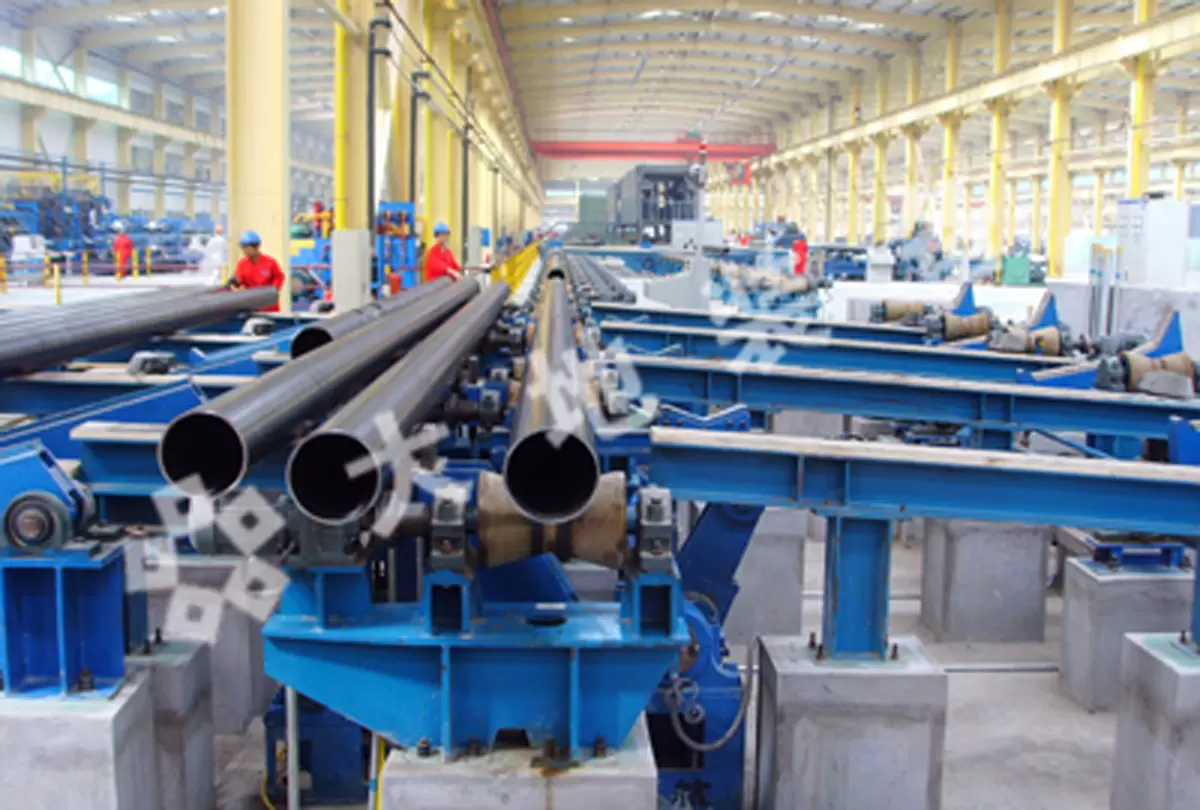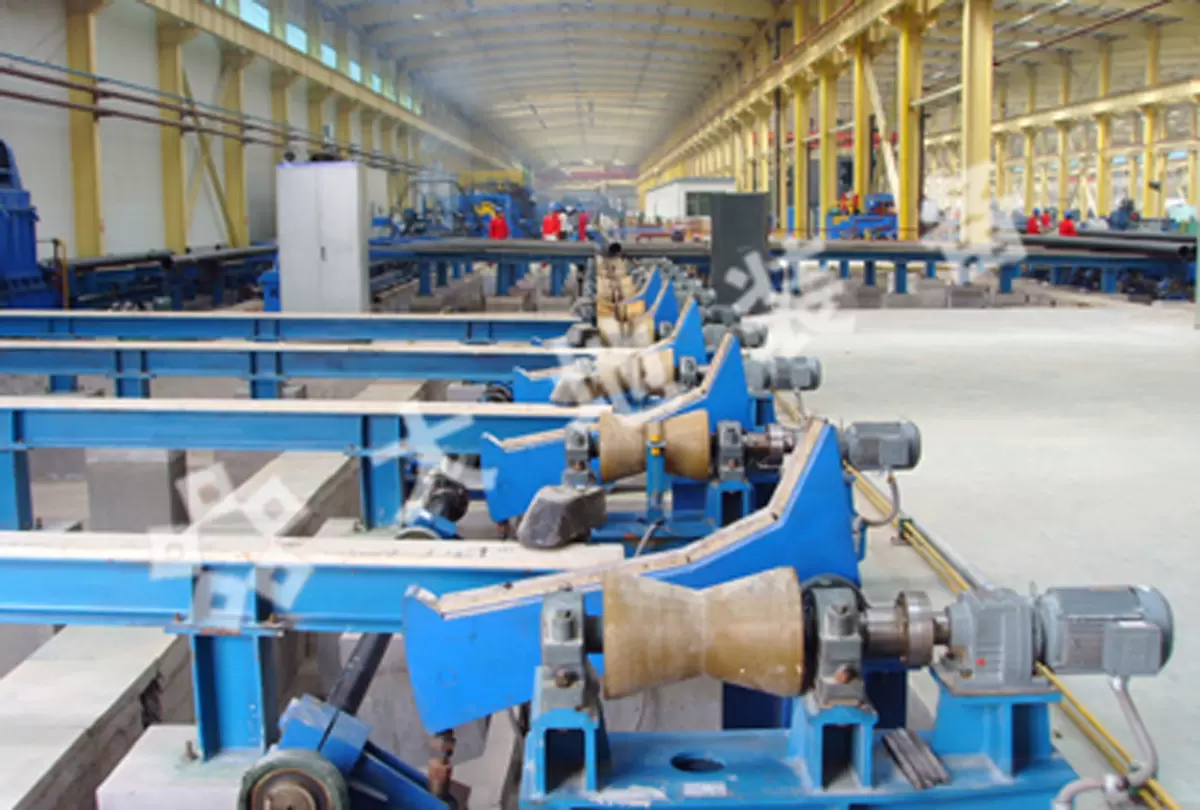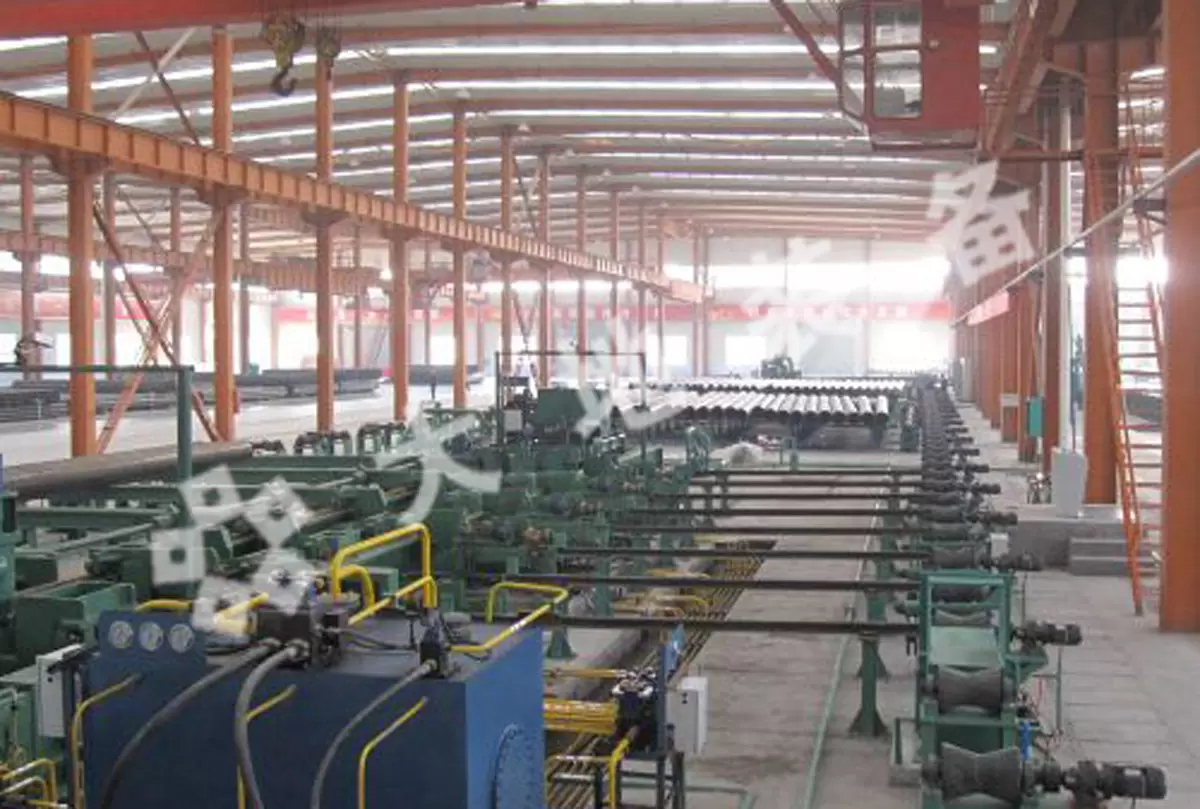In the world of industrial manufacturing, the integrity and reliability of pipe connections are crucial for ensuring operational efficiency and safety. Seamless pipes, known for their strength and durability, are widely used across various sectors, including oil and gas, petrochemicals, and construction. However, the effectiveness of these pipes largely depends on the quality of their connections, which is where pipe finishing equipment comes into play. Dadi Equipment Co., Ltd., a company specializing in bulk material handling and high-end metallurgical equipment, recognizes the importance of advanced pipe finishing technologies in achieving seamless pipe connections. This article delves into the significance of pipe finishing equipment in creating robust and leak-proof pipe connections.
Understanding Pipe Finishing Equipment
What is Pipe Finishing Equipment?
Pipe finishing equipment refers to a range of machines and tools designed to enhance the quality and functionality of pipes after they are manufactured. This equipment is essential for preparing pipes for installation by ensuring that their ends are shaped, cleaned, and treated to meet specific standards for connection.
Key Components of Pipe Finishing Equipment
Straightening Machines: These machines ensure that pipes are straightened to precise specifications, which is critical for achieving proper alignment during installation.
End Finishing Machines: These include cut-off saws, end facers, and deburring machines that prepare the ends of pipes for welding or other connection methods.
Hydrostatic Testers: Used to test the strength and leak resistance of pipes by filling them with water and applying pressure.
Coating Systems: These systems apply protective coatings to prevent corrosion and enhance durability.
Packaging Solutions: Advanced packaging systems ensure that finished pipes are safely stored and transported without damage.
The Importance of Pipe Finishing in Achieving Seamless Connections
1. Ensuring Proper Alignment
Proper alignment is essential for creating effective pipe connections. Misalignment can lead to stress concentrations that may cause leaks or failures over time. Pipe finishing equipment, particularly straightening machines, plays a crucial role in ensuring that pipes are perfectly aligned before installation.
Straightening Process: Pipes are fed through straightening machines that apply controlled forces to correct any bends or warps. This process enhances the overall integrity of the piping system.
2. Enhancing Surface Quality
The surface quality of pipe ends significantly affects the performance of connections. Rough or uneven surfaces can hinder proper sealing, leading to leaks or structural weaknesses.
Deburring and Faceting: End finishing machines remove burrs and create smooth surfaces at the pipe ends. This ensures a tight fit when connecting pipes through welding or flanging.
3. Facilitating Effective Welding
Welding is one of the most common methods for joining seamless pipes. For effective welding, the edges must be prepared correctly to ensure strong bonds.
Beveling Machines: These machines create beveled edges on pipe ends, which facilitate better penetration during welding processes like TIG (Tungsten Inert Gas) or MIG (Metal Inert Gas). Proper beveling enhances weld strength and reduces the risk of defects.
4. Testing for Integrity
After finishing processes, it is vital to test pipes for integrity before installation. Hydrostatic testing is a standard method used to ensure that pipes can withstand operational pressures without leaking.
Hydrostatic Testing Process: Pipes are filled with water and pressurized beyond their normal operating conditions to check for leaks or weaknesses. This testing is crucial in industries where safety is paramount.
5. Corrosion Resistance
Corrosion can severely impact the lifespan and performance of piping systems. Applying protective coatings during the finishing process helps mitigate this risk.
Coating Applications: Advanced coating systems apply protective layers that enhance corrosion resistance while also providing additional mechanical protection against impacts and abrasions.

Applications of Pipe Finishing Equipment
Pipe finishing equipment is utilized across various industries due to its critical role in ensuring reliable pipe connections:
1. Oil and Gas Industry
In the oil and gas sector, seamless pipes are extensively used for transporting hydrocarbons under high pressure. The reliability of these connections is vital for preventing leaks that could lead to environmental disasters.
Finishing Requirements: High-quality finishing processes ensure that pipes can withstand extreme conditions while maintaining integrity throughout their service life.
2. Petrochemical Industry
Petrochemical facilities rely on seamless pipes for transporting chemicals safely. The potential hazards associated with these materials necessitate rigorous quality control measures during pipe finishing.
Safety Standards: Compliance with industry standards requires thorough testing and finishing processes to guarantee leak-proof connections in chemical transport systems.
3. Construction Industry
Seamless pipes are commonly used in construction applications, including plumbing, HVAC systems, and structural supports. The quality of pipe connections directly affects overall system performance.
Installation Efficiency: Properly finished pipes facilitate quicker installations with fewer complications related to misalignment or leaks.
4. Power Generation
In power generation plants, seamless pipes transport steam, water, and gases under high pressure and temperature conditions. Ensuring reliable connections is crucial for operational efficiency and safety.
Thermal Resistance: Finishing processes help prepare pipes to handle thermal expansion without compromising structural integrity.
Benefits of Using Advanced Pipe Finishing Equipment
Investing in advanced pipe finishing equipment offers numerous advantages:
1. Improved Quality Control
Automated finishing processes enhance consistency in quality by minimizing human error during preparation stages.
2. Increased Efficiency
Modern finishing equipment operates at high speeds while maintaining precision, allowing manufacturers to meet production demands without sacrificing quality.
3. Cost Savings
By reducing the likelihood of leaks or failures due to improper finishing, companies can save on maintenance costs and downtime associated with repairs or replacements.
4. Enhanced Safety Compliance
Adhering to industry standards through rigorous finishing processes ensures compliance with safety regulations, reducing liability risks associated with failures or accidents.

Challenges in Pipe Finishing Processes
Despite its importance, several challenges can arise during pipe finishing:
1. Equipment Maintenance
Regular maintenance is essential to keep finishing equipment operating efficiently; failure to do so can result in decreased performance or breakdowns.
2. Material Variability
Different materials may require unique finishing approaches; understanding these requirements is critical for achieving optimal results across various applications.
3. Skilled Labor Requirements
Operating advanced pipe finishing machinery often necessitates skilled personnel who understand both the technology and the specific requirements of different materials and applications.
Future Trends in Pipe Finishing Technology
As technology continues to advance, several trends are shaping the future of pipe finishing:
1. Automation Integration
The integration of automation technologies will streamline operations further by reducing manual intervention while enhancing precision in finishing processes.
2. Smart Manufacturing Solutions
The adoption of smart manufacturing solutions will allow real-time monitoring of production processes, enabling manufacturers to optimize operations based on data-driven insights.
3. Sustainable Practices
With increasing emphasis on sustainability, future developments may focus on reducing waste during finishing processes while improving energy efficiency across operations.

Conclusion
The importance of pipe finishing equipment cannot be overstated when it comes to achieving seamless pipe connections across various industries. By ensuring proper alignment, enhancing surface quality, facilitating effective welding, testing for integrity, and providing corrosion resistance, advanced finishing technologies play a crucial role in maintaining operational efficiency and safety standards.
Dadi Equipment Co., Ltd.'s commitment to manufacturing high-quality bulk material handling equipment aligns perfectly with the growing demand for reliable solutions in this area. As industries continue to evolve towards more complex applications requiring seamless connections, investing in advanced pipe finishing technologies will remain essential for meeting these challenges head-on while ensuring safe and efficient operations across all sectors.
Streamlining Pipe Finishing Processes: Innovative Solutions for Improved Productivity